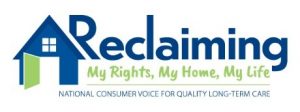
The first questions people ask an Ombudsman are usually “What does that mean?” and “What do you do?” The answer to both of those questions is in the definition of the Swedish-derived word itself, which translates to “one who speaks on behalf of another.” In the context of long-term care in Jefferson County, an Ombudsman advocates for residents of nursing homes, boarding homes and assisted living facilities.
Sheree Head and Morgan Rhodes lead the Long-Term Care Ombudsman Program of the United Way Area Agency on Aging (UWAAA). With Residents’ Rights Month approaching in October, they give insight into which rights residents have and what to do when a resident, loved one or staff member feels the facility is not honoring those rights.

“Residents’ Rights Month is big for us, because that’s essentially what we’re here for: to monitor the rights of individuals in long-term care, ensure that their rights are not being violated and make sure they know their rights,” said Sheree.
WHAT ARE MY RIGHTS?
Education is an integral part of the process. During Sheree and Morgan’s quarterly visit to every facility in Jefferson County, they go into each room and discuss with residents how their care is going.
A broad overview of rights include:
- Dignity and Respect
- Privacy
- Accommodation of needs
- Participation in activities
- Freedom of choice

While some procedures must remain in place, such as when residents receive medication, it’s vital to let residents know what their care providers can adjust to make their lives happier.
“One of the biggest barriers for residents in any long-term care setting is they don’t know what they can ask for,” said Morgan. “They’re normally surprised by what they’re allowed to do because nobody has sat them down and told them.”
Residents may not know they can choose when they wake up; they can choose to have an alternative menu item; or they can decide what time to have a bath. It’s not always that the facilities are denying rights, but that residents aren’t aware of their privileges.
But when residents do ask and facilities deny them, that’s when someone should call the Ombudsman at 1-800-AGE-LINE (1-800-243-5463) for backup. Anyone, including family members, friends and employees, can reach out. Sheree and Morgan will investigate while respecting the concerned person’s confidentiality.
RESIDENTS’ BIGGEST CHEERLEADERS
Sheree and Morgan wear the hats of investigators, facilitators, mediators and more. From determining that a coffee maker in a resident’s room would solve other complaints to dealing with more serious issues, they take on whatever role addresses the problem.
“It doesn’t matter what phase the situation is in,” said Sheree. “We’re here to help.”


The UWAAA Long-Term Care Ombudsman Program ensures everyone has access to what they deserve. Raise your awareness of Residents’ Rights Month this October by finding out more information on what the program can do for you or a loved one through the UWAAA website or calling 1-800-AGE-LINE (1-800-243-5463).